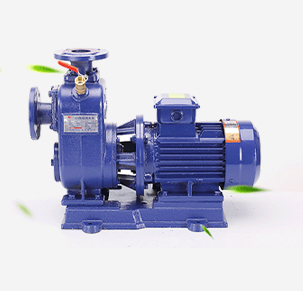Rwandese
- Afrikaans
- Albanian
- Amharic
- Arabic
- Armenian
- Azerbaijani
- Basque
- Belarusian
- Bengali
- Bosnian
- Bulgarian
- Catalan
- Cebuano
- Corsican
- Croatian
- Czech
- Danish
- Dutch
- English
- Esperanto
- Estonian
- Finnish
- French
- Frisian
- Galician
- Georgian
- German
- Greek
- Gujarati
- Haitian Creole
- hausa
- hawaiian
- Hebrew
- Hindi
- Miao
- Hungarian
- Icelandic
- igbo
- Indonesian
- irish
- Italian
- Japanese
- Javanese
- Kannada
- kazakh
- Khmer
- Rwandese
- Korean
- Kurdish
- Kyrgyz
- Lao
- Latin
- Latvian
- Lithuanian
- Luxembourgish
- Macedonian
- Malgashi
- Malay
- Malayalam
- Maltese
- Maori
- Marathi
- Mongolian
- Myanmar
- Nepali
- Norwegian
- Norwegian
- Occitan
- Pashto
- Persian
- Polish
- Portuguese
- Punjabi
- Romanian
- Russian
- Samoan
- Scottish Gaelic
- Serbian
- Sesotho
- Shona
- Sindhi
- Sinhala
- Slovak
- Slovenian
- Somali
- Spanish
- Sundanese
- Swahili
- Swedish
- Tagalog
- Tajik
- Tamil
- Tatar
- Telugu
- Thai
- Turkish
- Turkmen
- Ukrainian
- Urdu
- Uighur
- Uzbek
- Vietnamese
- Welsh
- Bantu
- Yiddish
- Yoruba
- Zulu
Telephone: +86 13120555503
Email: frank@cypump.com
Jul . 27, 2024 11:49 Back to list
Exploring the Benefits and Applications of a 1% HP Septic Pump for Your Home System
Understanding 1% HP Septic Pumps Features, Benefits, and Applications
Septic systems play a crucial role in managing wastewater for homes and businesses, especially in rural or suburban areas where centralized sewage treatment is not available. A key component of many septic systems is the septic pump, and among the various options available, the 1% horsepower (hp) septic pump stands out for its efficiency and effectiveness. This article explores the features, benefits, and applications of 1% hp septic pumps, providing insights into why they are a suitable choice for many households.
What is a 1% HP Septic Pump?
A 1% hp septic pump is a submersible pump specifically designed for septic systems. It operates at approximately 0.1 hp, making it an ideal choice for lifting and moving wastewater from a septic tank to a drain field or other disposal area. This type of pump is typically used in systems where gravity alone cannot transport wastewater effectively, such as when the drain field is located at a higher elevation than the septic tank.
Features of 1% HP Septic Pumps
1. Durability Most 1% hp septic pumps are constructed from high-quality materials that can withstand the corrosive nature of wastewater. For example, cast iron or thermoplastic constructions are common, providing longevity and resistance to wear.
2. Efficient Performance Operating at 1% hp, these pumps are designed to manage moderate volumes of wastewater effectively. They are capable of handling solids and can run periodically when the system calls for it.
3. Automatic Operation Many of these pumps come with built-in float switches that allow for automatic operation. When the water level rises or falls, the float switch triggers the pump to start or stop, ensuring efficient and energy-saving operation.
4. Versatility 1% hp septic pumps can be used in various settings, from single-family homes to larger properties with multiple bathrooms. They serve as an effective solution for a range of applications, including effluent and sump pumping.
Benefits of Using a 1% HP Septic Pump
1 hp septic pump

1. Cost-Effective These pumps are generally more affordable than higher horsepower variants, making them a cost-effective choice for many homeowners. Their economical operation also leads to lower electricity bills.
2. Energy Efficiency With a lower horsepower rating, 1% hp septic pumps consume less energy compared to larger pumps. This not only contributes to cost savings but also reduces environmental impact.
3. Reduced Maintenance The robust design and materials used in these pumps ensure that they require minimal maintenance. Regular cleaning and inspection can prolong their lifespan and performance.
4. Effective Waste Management By efficiently moving wastewater, these pumps help prevent sewage backups and ensure that the septic system operates effectively. This is vital for maintaining the health of the septic system and the surrounding environment.
Applications of 1% HP Septic Pumps
1. Residential Use Ideal for private homes that rely on septic systems, a 1% hp septic pump can handle the wastewater needs of a typical household with ease, ensuring efficient drainage.
2. Commercial Properties Smaller commercial establishments, such as cafes or shops without access to municipal sewage, can also benefit from 1% hp septic pumps for effective wastewater management.
3. Seasonal Homes For cabins or vacation properties, these pumps can efficiently manage wastewater disposal, allowing for the use of the facility even during peak seasons.
Conclusion
In conclusion, the 1% hp septic pump is a reliable and efficient choice for managing wastewater in various scenarios. Its affordability, energy efficiency, and low maintenance requirements make it a popular option among homeowners and businesses alike. Proper installation and regular maintenance ensure that these pumps provide effective service, contributing to a clean and safe environment. Understanding the functionality and benefits of a 1% hp septic pump can help individuals make informed decisions about their wastewater management needs.
-
Custom Drilling Mud and Slurry Pump Supplier - High Efficiency, Tailored Solutions
NewsJun.10,2025
-
Supply Vertical Submersible Sewage Pump High-Efficiency WQ/QW Pumps Supplier
NewsJun.10,2025
-
Premium Sewage Ejection System & Pumps Efficient Waste Removal
NewsJun.09,2025
-
Premium Wholesale Slurry Pump Impellers Durable & Efficient Slurry Handling
NewsJun.09,2025
-
Top Sewage Pump Companies Durable Industrial Solutions for Efficiency
NewsJun.09,2025
-
Heavy Duty Slurry Pumps - OEM High Performance & Bulk Wholesale
NewsJun.09,2025










